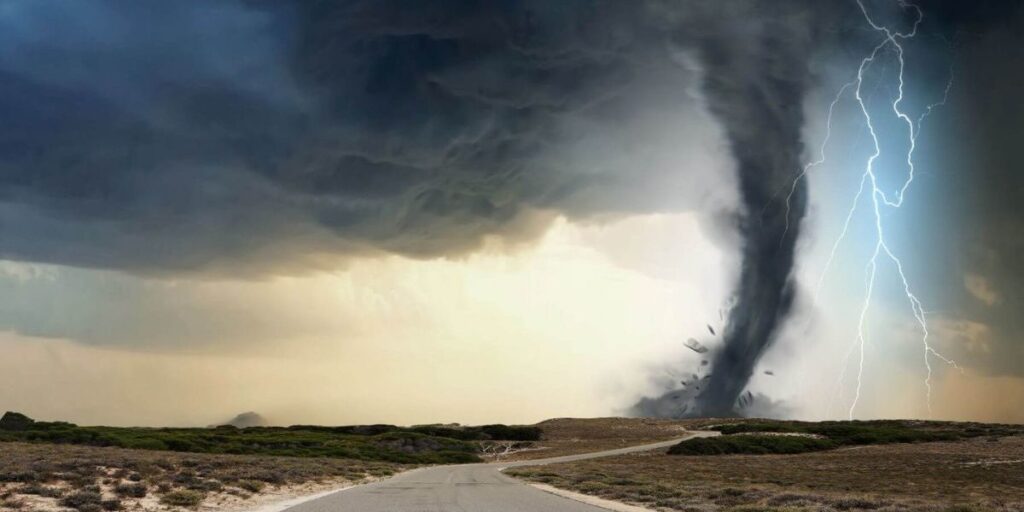
The world is tumultuous by nature, a whirligig of happenings only a tiny portion of which any of us knows about, not including the bubbling froth of thoughts and feelings in individual hearts and minds.
With its endless storms and earthshaking, as if the vicissitudes of nature are not enough, add to it humanity’s din of discord, avalanche of opinion, constant conflicts, social struggles, jostling for power – in short, the turmoil of society. It feels overwhelming. Who fails to find themselves sometimes at wit’s end, in need of solace and serenity in such a world?
Even the most cursory view of history teaches us that this is the human situation, and wrestling with the facts of existence has always occupied our time, or at least the time of thinkers and philosophers trying to uncover the ways of coping. Approaches run the gamut, from materialistic to metaphysical, engagement to abandonment.
There are, of course, many people who lack the luxury of such figuring; the effort to stay safe, find food, clothing and shelter is well enough and staying alive itself fills all their time. The urge-to-live propels us all, that mysterious and ancient engineer of survival shrouded behind the curtain of thought and behavior. Time spent contemplating why and how is a luxury for the few.
Nonetheless, a range of “influencers” have explored these questions, and to great effect. To fervent seekers of serenity, this imperfect world with its many problems is best abandoned, thoughts turned to paradise after death, the solitude of silence, and rejection of the senses and bodily pleasure. Seeking to quiet mind and heart, they aspire to transcend our human situation.
Materialists chart an altogether different course, some engaging the world in a frantic flurry of activity intended to find peace by eliminating difference. Through force of argument, and all too often at the barrel of a gun, they seek power over others and the circumstances of life. In this way they pursue the creation of Utopia, the elimination of strife and disagreement through imposition of order and a political economy that dictates who can have what possessions and kinds of thought.
These are tensions of our human situation, and they reflect the innate tensions of nature. Simultaneous acts of creation and destruction, just one of many complementary antimonies of existence and of which mind is aware – life and death, good and evil, light and dark, hot and cold, soft and hard, sweet and bitter, and so on – intrinsically producing turmoil in restless human hearts and minds. Suffering is inescapable, but we keep on trying.
Unless tales of the final judgement are true, each of us will enjoy the final serenity of death soon enough. Why rush it? In the meantime, we are confronted with the world as it is. Nirvana sounds appealing, but if it remains an ideal, the perfect refuge from suffering, it dodges our human situation. Better, perhaps, is the truth that Nirvana is Samsara, that perfection, if it is to be found, is in the acceptance of and participation in the world as it is with all its phenomenal diversity, madness, and turmoil, including our own.
The issue then becomes how we choose to participate, yet another age-old question. Plato recommended three sorts of philanthropy: Courteousness, Kindness, and Pleasantness. A prayer of the 7,000-year-old Zuni culture includes: Show Up, Tell the Truth, Pay Attention, and Let Go of Outcomes. It’s not like we haven’t been told.
Indeed, the thought that enters my mind upon scanning through this essay is the recollection of the Buddhist admonishment to, “guard your sense doors”. As we note the passing of our associates and friends we are apt to dwell on the types of suffering, birth, old age, sickness, and death. Were we ever here or is it just the sum of residual karma on the merry go round of one incarnation after the other. The “SELF” has a nasty tendency to keep appearing out of that mindless substrate we call the sub-conscious. Darn.
Becoming fixated on appearances is typical and normal, but may miss feeling the bigger picture, as you note, Michael. As for the “self,” it’s just, in the end, another appearance to notice, despite the tendency to fixate upon it.